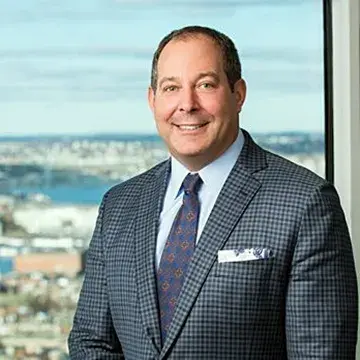Navigating the Maze

To David M. Holley ’99, managing director of Boston-based Berkeley Research Group, a global consulting firm, there’s a mounting body of evidence that compliance officers now have bull’s-eyes on their backs.
“There’s this talk now of corporate culture and whether a company has a culture of compliance,” says Holley. “It used to be enough to say yes, the company has a culture of compliance. But now there’s an effort to try to measure it.”
Holley takes a particular interest in this increasingly demanding regulatory climate because helping clients develop stronger compliance programs is the aspect of his job that he likes the most.
“I really enjoy the governance space – when something goes wrong in a company, how to improve the governance around what led to the problem,” he says. “We provide assistance for organizations looking to comply with new regulatory regimes as they become the focus of regulatory scrutiny. For instance, we work with organizations to establish anti-corruption
and anti-bribery programs. We work with the organization to develop policies and procedures, and establish practices to undertake due diligence on their third parties, their vendors, their agents. We can do the book and records reviews to ensure that they are complying and offer advice along the way for improving.”
Holley came to BRG last December after 15 years at Kroll Inc., a corporate consulting and investigations firm where he was senior managing partner. He decided to come to BRG, he says, because it provided a broader array of client services.
Holley has dedicated his entire career to investigation. After getting a B.A. in political science from Boston University in 1989, he was a litigation support specialist in the U.S. Justice Department’s environmental enforcement section. After he got his J.D. at RWU Law in 1999, he joined Kroll.
During his time there, he developed an expertise in financial institutions, conducting investigations of banks’ involvement in tax-shelter sales and suspected money-laundering control failures in the wake of bad regulatory reviews. He’s also done black-market and gray-market counterfeit knockoff investigations for manufacturers of consumables. In addition, Holley has handled whistleblower cases involving employee wrongdoing.
An emerging area in the world of corporate investigations, he says, is that of how companies deal with sanctions lists maintained by the U.S. Treasury Department’s Office of Foreign Assets Control. These are lists of nations and groups of individuals, such as terrorists or narcotics traffickers, including descriptions of transactions with them, that are prohibited.
“For manufacturers, it means making sure that the products they put on the marketplace don’t wind up in sanctioned countries,” Holley says. “It means having procedures or processes in place to know who your customers are. It’s important because the government relies on public and private companies to enforce their agenda.”
Meanwhile, Holley’s day-to-day work provides ample professional and personal gratification.
“It’s heartening to me that I can help clients,” he says. “Sometimes it’s resources, sometimes it’s looking at a problem a different way. Whatever it is, I’m appreciative of being able to do that.”
